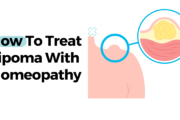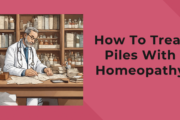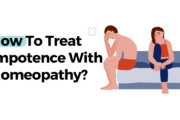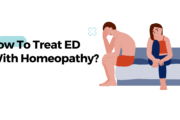Summary: Homeopathic treatment for pimples offer a diverse range of remedies to address various causes. The individualized approach of homeopathy treatments based on specific symptoms and characteristics provides a holistic solution to manage pimples.
What Are Pimples?
Pimples, commonly linked to acne, result from obstructed or inflamed oil glands and bacterial proliferation on the skin. These blemishes, appearing as blackheads, whiteheads, or cysts, primarily emerge on facial areas like the nose, chin, forehead and occasionally on the cheeks or around the lips.
Additionally, while pimples commonly appear on the neck, back, chest, and upper arms, the glands that produce skin-hydrating sebum are spread throughout the body. This wider distribution can sometimes cause pimples to appear in less expected areas like the eyelids, buttocks, ears, scalp, armpits, and external genitalia.
While initially associated with adolescents and young adults undergoing hormonal shifts, pimples can affect individuals across various age groups, extending into the 20s, 30s, and beyond. Surprisingly, some individuals experience their first encounter with pimples during adulthood.
Although pimples don’t pose significant risks to physical health, their impact can extend into psychosocial and psychological realms, potentially correlating with conditions like anxiety, depression, mood disorders, and even triggering thoughts of self-harm.
Thus, despite their seeming insignificance, effective care and treatment for pimples are essential, addressing both their physical manifestation and their potential psychological implications.
What Are The Various Types Of Pimples?
Pimples, common in acne, start as blocked pores called comedones. Initially, they appear as small bumps without inflammation. But when these comedones get infected by bacteria or are squeezed, they become red and swollen. Understanding this process is crucial to recognizing the various types of pimples. Below are some of the common types of pimples:
- Papules
Papules are inflamed blemishes appearing as red bumps without visible heads. Varying in size, these lesions can surface on the face, neck, chest, back, and shoulders. They arise when the hair follicle wall ruptures, leading to the spillage of cellular debris and bacteria into the skin’s deeper layers.
- Pustules
These are red, inflamed lesions with a noticeable white or yellow head. Ranging in size, pustules commonly occur on facial, back, and shoulder areas. They form following papules’ rupture, causing the body’s immune response to produce pus.
- Nodules
Nodules are severe and painful lumps located deep within the skin. These complex lesions lack visible heads and result from the follicle wall’s deep rupture, often leading to infection and swelling.
- Cysts
Cysts are large, severe pimples characterized by soft, fluid-filled lumps under the skin’s surface. These deeply rooted lesions form when a break in the follicle wall causes the formation of a membrane around the infection.
What Causes Pimples?
Pimples result from skin irritation typically caused by clogs or inflammation in the body’s sebaceous glands, which distribute and produce an oily substance called sebum. These conditions stem from various factors including dietary choices, hormonal fluctuations, genetic predispositions, and stress levels. The factors contributing to pimple formation include;
- Increased Sebum Production: Pimples can arise when the sebaceous glands generate excess sebum, an oily substance that helps maintain skin moisture. When these glands produce more sebum than necessary, it can inadvertently trap dirt and debris within pores. This can create an environment favorable for bacteria to proliferate, leading to pus-filled lesions and subsequent inflammatory responses, resulting in pimple breakouts.
- Abnormal Keratin Formation: Keratin, a protein crucial for skin, hair, and nail health, can undergo irregular formation. When keratin formation becomes abnormal, it can result in the formation of plugs within the hair follicles, leading to the development of pimples.
- Presence of Bacteria on the Skin: Bacterial presence on the skin, particularly a strain known as Propionibacterium acnes, plays a role in developing pimples. When these bacteria multiply and infect the blocked pores, they trigger inflammation and contribute to acne lesions.
- Diet: Dietary habits can influence pimple development. Certain foods have been associated with increased pimples, such as animal proteins (like chicken and beef), chocolate, cow’s milk, fast food, fried or greasy foods, and high-glycemic carbohydrates. Adopting a low-glycemic or vegetarian/vegan diet may assist in minimizing breakouts.
- Hormones: Hormonal imbalances significantly contribute to pimples, especially during adolescence and adulthood. Fluctuating hormone levels can boost sebum production, potentially clogging pores and triggering breakouts. Hormonal pimples, prevalent among adults aged 20 to 50, are often linked to menstrual cycles, pregnancy, menopause, stress, steroid medications, and certain drugs like lithium.
- Stress: Although stress alone doesn’t directly cause pimples, it can aggravate pre-existing pimple-prone skin. Stress induces the release of hormones such as cortisol and androgens, exacerbating breakouts, particularly on oily areas like the forehead, nose, and chin. Stress-related pimples might manifest as whiteheads, blackheads, dilated pores, redness, and oily skin.
- Other Factors for pimple: Several factors can increase susceptibility to pimple, including;
- Adolescence
- Birth (newborn pimple)
- Genetic predisposition
- Menopause
- Perimenopause
- Menstruation
- Pregnancy
What Is The Effective Homeopathic Treatment For Pimples?
Pimples, a common skin issue, can find relief through various homeopathic treatments. These treatments include:
- Psorinum: Psorinum is highly effective against facial pimple breakout. This treatment targets acne indurata, simplex, and pustular types. Specifically beneficial for oily skin prone to increased sebum production, Psorinum reduces excessive oil secretion, addressing the fundamental cause of pimple outbreaks. It’s also valuable in managing pimples aggravated by consuming chocolates, meats, sweets, and fats, including treating itchy winter pimples.
- Calcarea Sulphurica and Hepar Sulph: Calcarea Sulphurica and Hepar Sulph homeopathic remedies offer significant relief for pustular pimples. These treatments are particularly effective against pus-filled pimples, often accompanied by blood in the discharge. Hepar Sulph specifically targets painful pimples that release pus, which is primarily beneficial for teenagers experiencing such conditions.
- Kali Bromatum: Addressing pimples affecting the chest, shoulders, and face, Kali Bromatum is an exceptional homeopathic solution. This treatment alleviates persistent itchy sensations and treats indurated, pustular, or simplex pimples. Moreover, Kali Bromatum aids in healing scar-forming pimples and is especially suitable for purple-tinged pimple cases.
- Natrum Mur and Antimonium Crudum: These medicines effectively manage facial pimples, particularly targeting cheek areas. Antimonium Crudum is ideal for treating pimples affecting cheeks that become hot, accompanied by a burning sensation. On the other hand, Natrum Mur is beneficial for itchy pimples on the cheeks, offering relief, especially to anemic girls.
- Sulfur: In instances of extremely itchy pimples, Sulfur proves to be a beneficial homeopathic treatment. It aids individuals with unhealthy-looking or unclean skin, relieving intense itching, particularly worsening at night or with warmth. Sulfur also demonstrates efficacy in treating pimples unresponsive to previously applied topical medications.
- Silicea: For pimples affecting the forehead, Silicea emerges as a potent homeopathic treatment. This remedy accelerates healing for pustular acne, demonstrating significant effects in resolving such pimple concerns promptly.
Always consult a doctor before using homeopathic treatment for pimples to ensure the right remedy and dosage for your specific condition.
What Are The Best Homeopathy Medicines For Pimples?
Following homeopathic medicines effectively addresses and alleviates different types of pimples;
- Antimonium Crudum
- Belladonna
- Berberis Aquifolium
- Bovista Lycoerdon
- Calcarea Silicata
- Hepar Sulphur
- Kalium Iodatum
- Ledum Palustre
- Sulphur
- Sulphur Iodatum
It’s essential to consult a doctor before using homeopathic medicines for pimples to ensure the right remedy and dosage for your specific condition.
Side Effects Of Homeopathic Medicine For Pimples
Homeopathic medicines, derived from natural substances, are generally considered safe due to their highly diluted form. They comply with strict quality standards outlined in the Indian homeopathic pharmacopeia. These medicines are typically safe for individuals across all age groups, including pregnant women.
However, it’s crucial to note that despite their overall safety profile, side effects may occur, albeit rarely, depending on individual sensitivities. Such side effects are usually mild and transient, such as temporary aggravation of existing symptoms or a brief condition worsening. Adhering to the prescribed dosage and under the guidance of a qualified homeopathic physician helps mitigate these potential side effects and ensures safe usage.
Homeopathic Remedy For Pimples
Here are some of the homeopathic remedies for pimples that offer a personalized approach for better treatment:
- Pulsatilla: This remedy is highly beneficial for girls experiencing hormonal changes during puberty, often linked with irregular menses and pimples. Pulsatilla is recommended for individuals with an aversion to fatty foods, a preference for open air, increased sensitivity, and a lack of thirst.
- Natrum Muriaticum: Known as Natrum Mur, this remedy effectively treats itchy pimples with oily and soiled skin. Symptoms that indicate its usage include a craving for salty food, intolerance to heat, a preference for open air and cool baths, aggravation from fatty foods, and associated conditions like anemia, anxiety, and constipation.
- Silicea: Recommended for pimples with excessive pus production, Silicea addresses various skin issues, especially cystic acne. It benefits individuals experiencing profuse perspiration alongside pimple aggravated by cold weather, swollen lymph glands, obstinate constipation, and pimple predominantly on the cheeks and forehead.
- Kali Bromatum: An excellent remedy for different forms of acne, particularly those leading to scarring and severe itching. Symptoms suited for this remedy include bluish-red pimples that burn or prick, affecting the forehead, back, chest, and shoulders, aggravated by anxiety, heat, and mental stress.
- Sulphur: An effective remedy for pimples on the back, especially when itching exacerbates, particularly at night due to warmth from the bed. Sulphur is recommended for individuals with pimples on their back, worsened by excessive external application of ointments. Other symptoms for Sulphur include unhealthy skin with excessive itching, burning sensation on the head and soles of the feet, and a warning against scratching when pimples appear.
It’s essential to consult a doctor before using homeopathic remedies for pimples to ensure the right remedy and dosage for your specific condition.
Dietary Changes To Manage Pimples
Achieving clearer skin involves sensible lifestyle choices and changes that can significantly impact pimple severity. Embracing certain dietary habits and lifestyle adjustments can remarkably improve skin appearance, reduce the visibility of spots and scars, and enhance self-confidence.
The following tips include dietary choices that can aid in managing pimples effectively:
- Regular Exercise: Maintaining an exercise routine can aid in healthy skin. Sweating during exercise helps unclog pores; however, post-exercise cleansing is crucial to prevent pore blockage due to sweat accumulation.
- Nutrient-Rich Foods for Pimple Management: Incorporating low-glycemic foods, zinc-rich sources, and vitamins A and E through diet may aid in managing pimples. Be mindful of individual allergies or sensitivities when planning dietary changes.
- Zinc: It is found in pumpkin seeds, cashews, beef, and seafood, zinc-rich foods may help prevent and treat pimples.
- Vitamins A and E: Increasing the intake of foods rich in vitamins A and E could alleviate severe pimples. Prioritize foods containing these vitamins, but consult a doctor before supplementing.
- Antioxidants and Omega-3 Fatty Acids: Foods rich in omega-3s and antioxidants are believed to reduce inflammation and pimple severity. Studies support the connection between increased consumption of these nutrients and reduced pimples.
- Hydration: Adequate water intake supports overall health, including hormone regulation. Opt for at least two liters daily, adjusting for exercise intensity.
Consult a healthcare professional for specialized treatments in severe cases. Options may include prescribed antibiotics, oral contraceptives for women, or referrals to dermatologists for advanced therapies.
Lifestyle Tips To Get Rid Of Pimples
The following tips include overall lifestyle adjustments that can aid in managing pimples effectively:
- Regular but Gentle Exfoliation: Regular exfoliation helps unclog pores and prevent new breakouts. Opt for a mild, natural body scrub once or twice a week to avoid harsh chemicals that may aggravate spots. Chemical exfoliators like salicylic acid, suitable for oily skin, can effectively penetrate pores. However, ensure gentle exfoliation to prevent skin inflammation.
- Customized Skincare Products: Different skin types require personalized products. Glycolic, salicylic, and lactic acid cleansers remove dead skin cells and unclog pores. Topical vitamin A-based products effectively manage pimple-prone skin and reduce pimple severity. Anti-inflammatory agents like benzoyl peroxide and azelaic acid help reduce redness and inflammation.
- Sun Exposure and Protection: Limited sun exposure can assist in treating pimple symptoms by drying out excess sebum. However, excessive exposure can lead to increased dryness, potentially clogging pores. Always wear UVA and UVB protection while in the sun and avoid sunbeds, which emit harmful UV rays.
- Evening Skincare Routine: Prioritize a gentle cleansing routine before bedtime to allow the skin to breathe and prevent eruptions. Remove makeup with water and pH-neutral soap.
Other Lifestle Changes Suggested:
- Hands-Off Approach: Resist the urge to touch or pick at spots, as this can introduce bacteria and worsen inflammation. Follow a consistent skincare regimen without unnecessary interference.
- Limit Shower Frequency: Overwashing can stimulate sebum production, exacerbating pimple-prone skin. Wash your face no more than twice daily with a gentle, medicated face wash containing specific acids, allowing the product to rest on the skin for optimal effectiveness.
- Makeup Considerations: Minimize makeup or use mineral-based products to avoid pore blockage. Use mineral-based foundation and concealer without additional oils to cover marks and scars without aggravating the skin.
Conclusion
Each therapy from Psorinum to Kali Bromatum, demonstrates unique efficacy in alleviating different pimples. Combining lifestyle adjustments, dietary changes, and professional guidance augments the effectiveness of homeopathic treatment for pimples and its remedies that help you achieve clearer and healthier skin while minimizing the adverse impact of pimples on your well-being.
It’s essential to consult a homeopathic doctor before using homeopathic remedies for pimples to ensure the right remedy and dosage for your specific condition.
Faq’s
Is homeopathy treatment good for pimples?
Homeopathy treatment benefits pimples by addressing root causes and preventing their return. Its approach focuses on addressing the underlying causes of acne, aiming to resolve the issue from its roots rather than merely suppressing the symptoms. Moreover, homeopathic treatment for pimples not only heal existing ones but also aid in preventing recurrent eruptions and minimizing the appearance of scars caused by previous outbreaks.
Which is the best homeopathy medicine for pimples and dark spots?
Kali Bromatum 200C is one of the best homeopathic medicines for itchy facial, chest, and shoulder pimples. It effectively targets blackheads, pustules with a depressed center, and burning pain associated with acne. Additionally, it aids in fading scars left behind after the acne has healed.
Which is the best homeopathic medicine for pimples due to hormonal imbalance?
Pulsatilla is considered one of the most effective homeopathic medicines for treating pimples caused by hormonal imbalances. It explicitly targets acne associated with hormonal changes, particularly during puberty in girls. Pulsatilla is known for addressing irregular menstrual cycles and acne outbreaks triggered by hormonal fluctuations.
Which is the best homeopathic face cream for pimples?
Bakson’s Acne Aid Cream and Tablet is a highly effective homeopathic face cream for pimples. This specialized formulation is crafted to address acne-related concerns specifically. It contains a powerful blend of berberis aquifolium and kali, which aids in managing acne and unclogging pimples, resulting in clearer, smoother, and healthier skin. This homeopathic cream is known for its potency in dealing with acne-related issues.
Which is the best homeopathic face wash for pimples?
Pimplonett Face Wash is considered one of the best homeopathic remedies for pimples. Specifically designed to address pitting, scarring, and unhealthy skin caused by pimples, it effectively eliminates excessive oil and blackheads. The face wash exfoliates dead skin cells and unclogs pores, promoting clearer and healthier skin while tackling pimple-related issues.
Which is the best homeopathic ointment for pimples?
Sulphur Anti-bacterial Ointment is among the best homeopathic remedies for pimples. It works effectively as an anti-bacterial agent to manage and alleviate pimples. This ointment targets bacterial infection and helps in reducing inflammation associated with pimples.
Can homeopathy cure acne permanently?
Yes, homeopathy has demonstrated effectiveness in treating acne and preventing its recurrence. Homeopathic remedies stimulate the body’s natural healing mechanisms, enhancing its ability to recover. These medicines support the body’s innate healing processes, which can lead to long-lasting relief from acne and reduce the likelihood of it returning.





